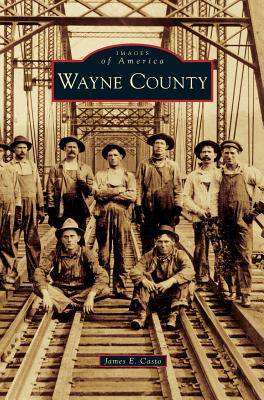
- Afhalen na 1 uur in een winkel met voorraad
- Gratis thuislevering in België vanaf € 30
- Ruim aanbod met 7 miljoen producten
- Afhalen na 1 uur in een winkel met voorraad
- Gratis thuislevering in België vanaf € 30
- Ruim aanbod met 7 miljoen producten
Zoeken
Omschrijving
Wayne County, West Virginia, was established on January 18, 1842, from part of Cabell County and named for Gen. Mad Anthony Wayne. The state's westernmost county, it lies at the juncture of two rivers: the Ohio and Big Sandy. The town of Wayne is the county seat. Although the southern half of the county was first to be settled, it was slow to develop. In contrast, the northern part bordering Cabell County grew rapidly. The city of Huntington ultimately expanded westward into Wayne County, an area now known as Westmoreland. In addition to Wayne and Huntington, the county has three other incorporated communities: Ceredo, Kenova, and Fort Gay. In the 19th century, timbering and farming were the county's economic mainstays. The southern end of the county experienced a growth spurt when, in 1890, the Norfolk & Western Railway was completed to Kenova. Today, many residents commute to Huntington or nearby Ashland, Kentucky. The county is the birthplace of gospel singer Michael W. Smith, major league pitcher Donnie Robinson, and Fannie Belle Fleming, better known as stripper Blaze Starr.
Specificaties
Betrokkenen
- Auteur(s):
- Uitgeverij:
Inhoud
- Aantal bladzijden:
- 130
- Taal:
- Engels
Eigenschappen
- Productcode (EAN):
- 9781531678272
- Verschijningsdatum:
- 16/11/2015
- Uitvoering:
- Hardcover
- Formaat:
- Genaaid
- Afmetingen:
- 170 mm x 244 mm
- Gewicht:
- 412 g

Alleen bij Standaard Boekhandel
+ 88 punten op je klantenkaart van Standaard Boekhandel
Beoordelingen
We publiceren alleen reviews die voldoen aan de voorwaarden voor reviews. Bekijk onze voorwaarden voor reviews.







